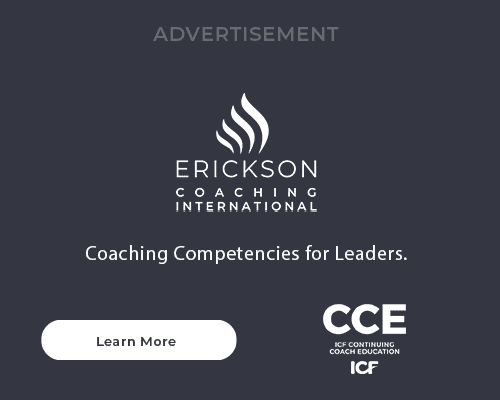Examining Coaching Methodologies in the Workplace
When distinguishing between the methodologies that coaches use in the workplace, we can safely divide them between two broad methodologies: one focused on bridging gaps and the other on developing strengths.
The former group of methodologies follows an approach that concentrates on developing identified learning gaps. A coach focuses on working with a client to target development areas while supporting them in setting and managing a goal-oriented process. Typically, such methodologies follow an established coaching model (e.g., GROW or CLEAR).
The second broad category of methodologies focuses more exclusively on strengths. These approaches might also utilize a goal-setting process; however, they actively emphasize increasing an individual’s strengths rather than highlighting and addressing gaps. The premise of these methodologies is that, although developmental areas are not to be ignored, priority should be given to further promote strengths over trying to address weaknesses.
When considering a specific career development outcome (e.g., promotion), which approach would be more suitable for us to take as coaches? Many will say that this depends on the situation and what the client wants to achieve, which is of course true. In fact, no two clients are the same, and we need to base this decision on our judgement and where the client is. This however still raises a key question for us as professional coaches: What do we base this judgement on? One possible answer to this is research, as it can provide us with some underpinning to justify the decision. Surprisingly though, even research does not make this particularly clear for us.
As a starting point, there’s some great news. Studies show that the use of coaching in organizations has been growing substantially and its effectiveness as a development methodology is becoming clearer. In the last 20 years, studies in coaching effectiveness have exploded, with many academics focusing on the “gold-standard” of methodologies by using randomized, controlled trials. These experiments are crucial, as they typically involve comparisons between a group that has undertaken a coaching intervention and another one that has not. Through these studies and their results, we, as professional coaches, have the underpinning to not only discuss the benefits of coaching but to also provide evidence to support our claims.
Nonetheless, for a practice that is so widely used to develop people, empirical research specifically examining the methodologies that coaches use in the workplace is surprisingly limited. There is, in fact, a disparity between the expanding practice of coaching in organizations and the research underpinning the methods that organizational coaches use. Although some studies do refer to coaching methodologies, it is rarely made explicitly clear what the method used by the coach was. Most research simply states that coaching followed a standardized “manual.”
The lack of a stated coaching method used raises significant concerns when it comes to informing practitioners in the field. It leads us to conclude that, although we know that coaching works, the suitability of a particular coaching methodology in producing specific career outcomes still remains hazy.
One reason why we still do not have strong conclusions with regards to this is because coaching methodologies are exceptionally diverse, making them very personal and unique as a learning and development process. Experienced coaches will typically use insight from different methodologies and use their judgement accordingly to identify what will best help their client to move forward.
It is also worth noting that, due to the rise of positive psychology, more organizational coaches are adopting and welcoming strengths-based coaching as their preferred methodology. While all coaching approaches are likely to achieve positive career development outcomes, coaching that is focused on developing a person’s innate, intrinsically-motivating strengths should logically lead to greater benefits. We can therefore argue that clients are more likely to achieve goals that are positively concordant with their view of self and of their strengths. Although this is something that has been proved in related fields (e.g., psychotherapy), we still do not have conclusive research to support us on this.
This means that as professional coaches, we currently have to rely on our own insight to understand what approach would work best with our organizational clients. Furthermore, during this crucial time, it is key that we support academics and initiatives that focus on bridging this gap between practice and research. ICF regularly asks its members to support researchers, and as part of our continuous development, we should make this a priority in order to keep on raising the standard of our profession.
©Smarter Learning Ltd.



